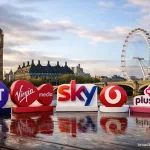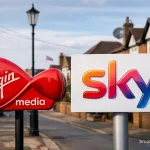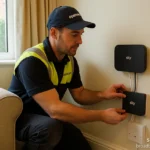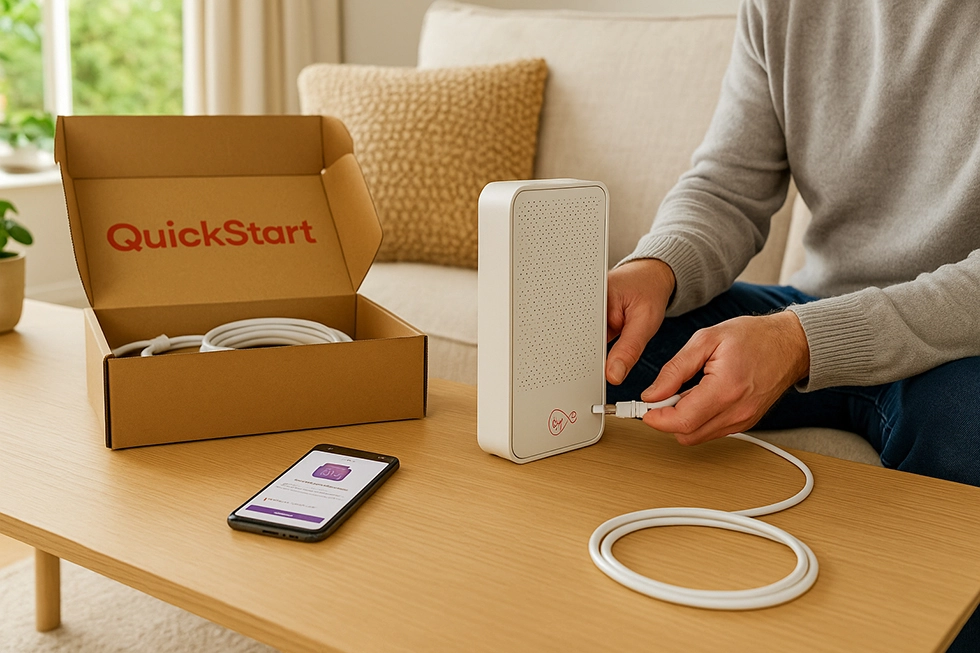A new report from Which? has reignited concerns about how major UK brands treat their customers. From broadband providers to airlines, mobile operators to retailers, several high-profile names have been called out for poor customer service, opaque pricing, and failure to deliver value for money. Among them, Virgin Media and EE stand out for reasons that strike a nerve with broadband and mobile users across the UK.
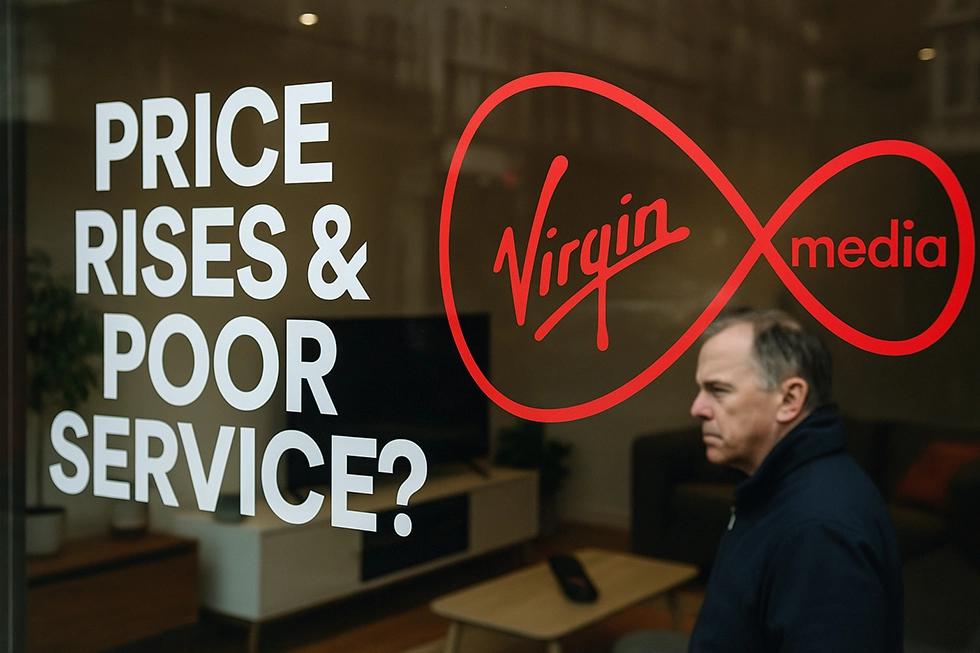
Virgin Media criticised again over rising prices and poor support
Virgin Media has once again made headlines for all the wrong reasons. In Which?’s 2025 Shoddy Awards, the broadband and TV provider received criticism for multiple ongoing issues — including poor customer satisfaction scores, steep mid-contract price hikes, and persistent complaints about its cancellation process.
Virgin Media’s broadband performance in terms of fast download speeds and high-capacity throughput may appear competitive on paper, especially with its DOCSIS 3.1 cable infrastructure. But performance is only one side of the equation. When a provider introduces price increases mid-contract — £3.50 per month for some broadband-only customers — and maintains complex exit procedures, it risks losing consumer trust. Add to that an ongoing Ofcom investigation into cancellation difficulties, and it becomes clear why Virgin has repeatedly topped these negative lists.
In a broadband market where full fibre (FTTP) networks are rapidly expanding, consumers expect providers to match network speed and reliability with transparent pricing and responsive support. Virgin’s network footprint still covers roughly 65% of UK premises, but repeated consumer dissatisfaction could open doors for competitors offering symmetrical speeds, lower latency, and simplified contracts.
EE Penalised for Mid-Contract Rises on Mobile Bundles
EE, a leading mobile and broadband operator, has been flagged for another trend: steep mid-contract price increases on bundled mobile plans. While most UK mobile networks follow inflation-linked pricing adjustments, EE stands out for applying an additional £4 monthly increase on bundles that combine airtime and device repayments. This is double what some rivals charge — and well beyond industry norms.
Ofcom’s updated rules around price transparency clearly require providers to communicate future price increases in an understandable format. But for many users, the actual impact is felt later — as confusing bills and inflated charges.
What makes EE’s situation notable is that the pricing strategy appears targeted at bundled contracts, which many customers end up with after failing credit checks for split-pay plans. This can result in vulnerable or lower-income customers absorbing disproportionately high fees. In today’s mobile landscape, where 5G coverage is expanding and SIM-only plans offer high data allowances at competitive rates, these bundled increases create a clear disadvantage for users seeking cost-effective connectivity.
Users Prioritise Reliable Speeds, Stable Wi-Fi, and Clear Pricing
Across all broadband providers, the pressure is growing to offer complete value — not just fast download speeds or theoretical maximum speeds. Customers want:
- Stable Wi-Fi coverage throughout the home
- Low-latency connections for remote work and gaming
- Predictable monthly pricing without hidden terms
- Accessible support for resolving technical or billing issues
Virgin Media, despite delivering multi-gigabit speeds in some areas, has fallen short on many of these expectations, especially on the customer experience side. By contrast, smaller full fibre providers like Community Fibre, Hyperoptic, and Trooli have leveraged this gap by offering symmetrical speeds, better contract flexibility, and transparent pricing models.
From Broadband to Retail: Who Else Made the Shoddy List?
This year’s Shoddy Awards didn’t stop at telecoms. Other sectors came under fire, too — but the underlying theme remained consistent: value for money, customer safety, and accountability.
- Home insurers were collectively criticised for declining a large proportion of claims — with over 30% of buildings insurance claims rejected, according to FCA data.
- Ticketmaster faced scrutiny for opaque pricing on Oasis concert tickets, where “Platinum” seats offered no real benefit over standard pricing.
- Sports Direct was accused of using misleading RRP pricing, often advertising discounts from prices that weren’t being charged anywhere else.
- Online marketplaces such as Amazon, TikTok Shop, and eBay were called out for enabling sales of dangerous electrical products, including unregulated heaters and faulty energy-saving plugs.
- Booking.com received criticism for inadequate scam prevention and poor handling of fraudulent listings.
- Tesco was cited for excluding teens from Clubcard access by setting the age limit to 18, while rivals allow cards at 16 or younger.
In each of these cases, Which? identified misleading practices or poor service that left customers disadvantaged — either financially or through lack of support when things went wrong.
Why Broadband and Mobile Are Under the Spotlight
While all sectors are feeling scrutiny, broadband and mobile stand out due to their essential service status. People rely on high-speed internet and mobile connectivity daily — for work, study, entertainment, healthcare, and communication. That makes failures in pricing fairness, contract transparency, or customer support much more impactful than a simple billing inconvenience.
Virgin Media and EE are not the only providers navigating this challenge. Sky, BT, Vodafone, and others are also under pressure to maintain network upgrades — such as migrating users from FTTC to FTTP, expanding 5G coverage, and offering Wi-Fi guarantees — while avoiding anti-consumer pricing tactics.
Are Smaller FTTP Providers Performing Better Than Major ISPs?
The message from this year’s Shoddy Awards is clear: customers want fair pricing, transparent terms, and reliability — not just headline-grabbing speeds or coverage claims.
Broadband providers have invested heavily in fibre rollouts, Wi-Fi 6 routers, and digital voice solutions. But all of that can be overshadowed by poor cancellation processes, unclear mid-contract changes, or delayed customer service responses.
Providers like Virgin Media and EE still have time to change course — by simplifying contract terms, aligning pricing with customer expectations, and strengthening post-sale support. But in a market where smaller FTTP providers are gaining traction by doing all these things from day one, the risk of losing loyalty is real.
Conclusion
If 2025 has shown anything so far, it’s that network performance alone no longer defines broadband quality. What matters just as much — if not more — is how customers are treated when things don’t go perfectly.
From bundled mobile fees to exit restrictions and mid-contract surprises, the telecom industry needs to realign with what UK consumers now expect. Speed still matters, but so do contract clarity, pricing honesty, and user-friendly service.
Providers who respond to this shift may still win back trust. Those who ignore it might find themselves featured in Which?’s next awards — for all the wrong reasons.

